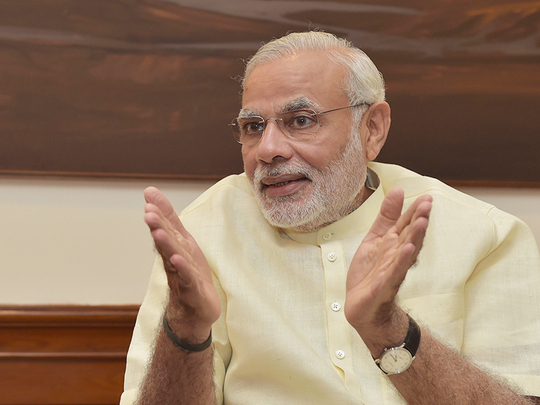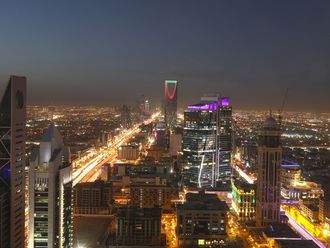
For the last two decades, India was getting adoring international press. Global public opinion shifted from visualizing India as an internally unstable country with massive poverty to a vibrant democracy which can even match China in economic growth. After the election of Narendra Modi as the Prime Minister of India in 2014, some of the liberal newspapers like The New York Times and The Washington Post in the United States and The Guardian in the UK started to occasionally write critical opinion pieces and editorials on deteriorating human rights and declining media freedoms. However, that did not stop the world to see India as an economic powerhouse and a challenger to China’s growing influence in Asia if not in the world. When India’s growth rate surpassed China in 2015-2016, the world somewhat saw Modi’s non-democratic acts like ‘demonetization’ as necessary attributes of a ‘strong leader’ needed for a country like India to be able to outcompete China.
This helped Modi to be seen as a world leader on the world stage. Before becoming the Prime Minister, Modi was denied a visa for almost ten years to travel to European Union or North America for his alleged role as Chief Minister in the mass killing of Muslims in 2002 in his home state Gujarat. His impressive election victory in 2014 and India’s growing economy made the world to forget the past and Modi relished the attention he received in world capitals. Modi did his best not to project his divisive image while traveling abroad and said all the right things that will please the world. He and his supporters took great pride at home over his high-profile frequent foreign visits to meet and dine with political and business leaders. Modi’s reelection with a greater majority in May 2019 not only raised the hope of the world over Modi making India economically more ‘profitable’ but also made Modi more confident about his place in the global power constellation. However, post-election euphoria did not last long.
While Modi’s abrupt withdrawal in August 2019 of limited autonomy of India’s only Muslim majority region Kashmir and use of oppressive measures to suppress any opposition was not enough for the world to be worried about, he also brought a new act in December 2019 for giving citizenship to everyone except Muslims migrating from neighboring countries. Coinciding with Modi’s controversial majoritarian measures, India’s economy has also faced a massive slowdown. India’s economic output growth slowed to 4.5% in the three months that ended in September 2019, which was the slowest pace since 2013. Not only IMF or Moody, even Reserve Bank of India has also downgraded the growth forecast of the country significantly. Failure on the economic front has made Modi vulnerable to increasing censure from the international community about his non-democratic and anti-minority policies at the home front.
While India has witnessed large protests at home against Modi’s new citizenship act, the UN’s human right body has called the act discriminatory and even the US’s Commission on International Religious Freedom has urged the White House to consider sanctions against Indian political leaders. Six resolutions have been tabled in the European Parliament which are highly critical of not only the new citizenship act but also the implementation of a national register for citizens in Assam and security lockdown in Kashmir. The intense diplomatic effort by India has managed only to postpone the voting on these resolutions till the end of March 2020. The new citizenship act has not only been criticized by Pakistan, but even India’s allies in the region, Afghanistan and Bangladesh have also been openly critical about it. China has brought Kashmir to be discussed in the UN Security Council closed-door meetings twice in recent months. Criticism of Modi’s policies is not only limited to international organizations or countries but also global business leaders have started to raise red flags. While Indian origin Microsoft CEO Satya Nadela has criticized the new citizenship act , billionaire philanthropist George Soros has cautioned the world at Davos that India under Modi is becoming a Hindu nationalist state. It is not The New York Times or The Guardian, even The Economist’s cover story has been titled ‘Intolerant India’ and Financial Times’ Editorial Board writes India’s secularism at risk.
While the troubled economy at home has given a serious beating to Narendra’s Modi’s ambition of being seen as a world leader of importance, the growing social unrest in the country has forced the progressive world to see him as a majoritarian-authoritarian leader who is dismantling India’s democratic-secular foundation. No doubt, in recent weeks Modi has been increasingly isolated internationally and a large number of people in India are coming out in open to protest against his regime. But, it will be naïve to assume that Modi has lost his support at home. International censure and the loud opposition internally by Muslims and their ‘secularist’ supporters consolidate Modi’s core support base of believers of a ‘Hindu Nation’ further. According to a recent survey, Modi is being seen by 34 percent of Indians as the best Prime Minister India ever had. Modi’s lockdown of the Kashmir or discriminatory citizenship act might have angered the international community and his critics at home, but it has increased his reputation as a strong Hindu leader among his support base. The divided opposition and the confusion over leadership in the Congress Party have given Modi comfort of continuing his rule with 30-35 percent of core support in the country. In India’s first-past-the-post voting system, Modi just needs to cater to his core base and signs are in that direction. Modi and his ministers are refusing to be conciliatory rather using the police force as well party cadres to suppress the protests at home. Modi even reportedly refused to meet the world’s richest man, Amazon CEO and the owner of The Washington Post, Jeff Bezos when he visited India in January 2020 and his party leaders and Ministers criticized him even if he promised to create one million jobs in India. Modi is prioritizing to keep his ‘Hindu nationalist’ supporter enthused instead of listening to the secular opposition at home or respecting growing international critical voices. This is neither good for India’s democratic development nor its economic recovery.
Ashok Swain is a professor of peace and conflict research at Uppsala University Sweden.








